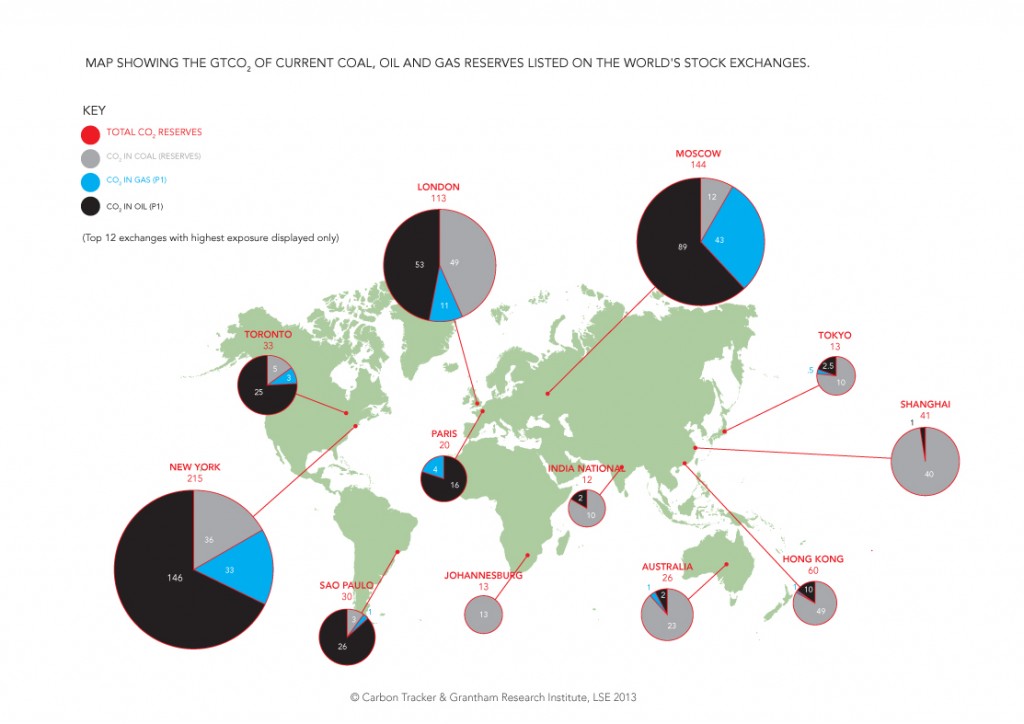December 11, 2014 – “We’re seeing a move from a carbon economy to a climate economy,” stated Ed Davey, Britain’s Energy secretary, who has called for a new set of rules to apply to companies holding what he considers to be risky assets in the form of shares in fossil fuel producers.
Davey points to analyst estimates indicating $28 trillion US could be wiped off the books of fossil fuel companies in the next two decades because of global commitment by nations to reduce their carbon footprints.
Davey joins Mark Carney, Governor of the Bank of England, as well as the bishops of the Catholic church in pointing out that investors need to be told the straight goods about the future of their portfolios which for most banks and investment institutions are heavily vested in energy stocks.
The map below from Carbon Tracker provides a snapshot of just how the world’s stock exchanges are heavily invested in fossil fuel companies.
This week Catholic bishops called for an end to the fossil fuel era and a focus on a future of 100 percent renewables. In their announcement in conjunction with the current ongoing climate talks in Lima, Peru, the bishops released a statement with the following:
“In viewing objectively the destructive effects of a financial and economic order based on the primacy of the market and profit, which has failed to put the human being and the common good at the heart of the economy, one must recognise the systemic failures of this order and the need for a new financial and economic order.”
The bishops cited those front-line communities such as the island nations of the Pacific and Indian Ocean who are already suffering from the impact of a climate change. The bishops noted that the poorest and most remote people of the planet are the victims of nations that have exhibited little respect for environmental consequences stemming from consumptive behaviour.
Joining Davey, Carney, and the Catholic bishops are a number of large pension fund and asset managers who are joining together to urge fossil fuel companies to explain how they intend to address climate change. The California Public Employee’s Retirement System, U.S. public pension fund, and Aviva Investors released a statement this week in which they pointed out the following: “Investors are concerned that current business strategies being pursued by some oil and gas companies may not be sufficiently sustainable…..major trends are shaping a new direction in favor of low carbon energy systems and it is a critical time for the oil and gas sector.”
These asset managers urged fossil fuel companies to “embed stress testing for climate risk within key business processes.” And all of these urgent requests and statements are being made during a time when the price of oil is plummeting and throwing stock markets into a roller coaster of turmoil. What will happen to global investments when this next shock wave hits, when proven coal, oil and gas reserves on fossil fuel company books are declared stranded, unburnable, because the nations of the world in concert commit to a low carbon future?
Of course we may find technology solutions that let us continue to use carbon-based fuels without producing the climate-damaging CO2 and other greenhouse gas emissions. I recently wrote about one of these coming from the laboratories at Massachusetts Institute of Technology. And I am sure our human inventiveness will come up with others. But whatever we do as we recognize the need to address carbon in the atmosphere our entire energy infrastructure will need to undergo a retrofit.












